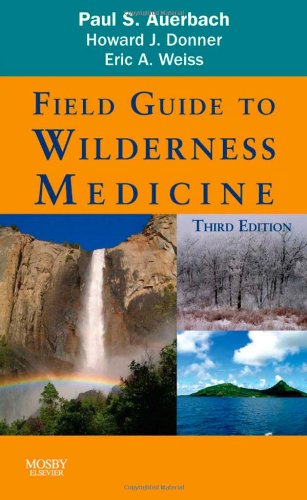 Reddit reviews Field Guide to Wilderness Medicine
Reddit reviews Field Guide to Wilderness Medicine
We found 1 Reddit comments about Field Guide to Wilderness Medicine. Here are the top ones, ranked by their Reddit score.

Used Book in Good Condition
I'm an EMT-B and WFR trained my WMI of NOLS. Though spendy, the course taught me everything I needed to know to pass my National Registry test. I work as a Professional Ski Patroller, and the emphasis on remoteness, self-sufficiency, and improvisation have proven the most useful in my professional setting and my off the clock backcountry excursions. Though I doubt I'll ever have to improvise a traction splint at work, the great emphasis on doing lots with little has helped me greatly in the field when patients present atypically, or when backup is a long way distant.
Another great aspect of the WMI program, is the length. It's 28 days of EMS, with not much else. Unlike taking your EMT through the local community college, I was surrounded by raft guides, skiers, and climbers, rather than meathead wannabe firefighters. (WFR only courses are cheaper, run about a week, and are often offered by WMI/WMA through large state universities such as the University of California, Santa Cruz, and the University of Washington, to name two).
I've also taken a Wilderness First Aid class, but it offered little more than what I learned in the First Aid Merit Badge as a boy. I highly recommend the WFR class, at a minimum. The curriculum covers much of what can go wrong in the backcountry, with an emphasis on patient care with only what climbers, skiers, and expedition hikers routinely carry. I greatly enjoyed my WMI of NOLS course, though friends work for WMA and SOLO and the syllabi and emphasis are pretty much the same throughout.
To work professionally, or for many SAR teams, you'll likely need an EMT-B (EMT-1 in some states) or be a registered first responder. Some great armchair resources include Paul Auerbach's Field Guide to Wilderness Medicine and the NOLS Wilderness Medicine: 4th Edition .